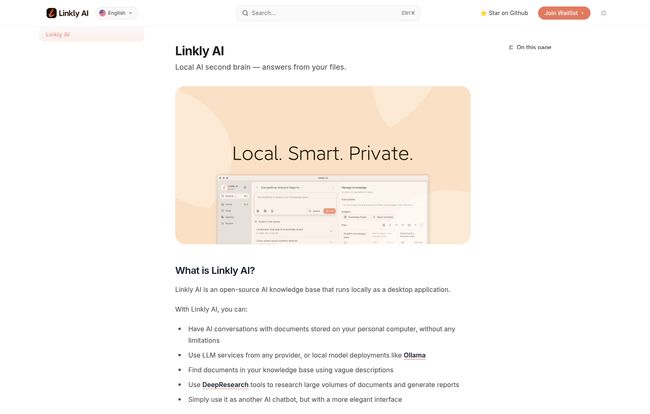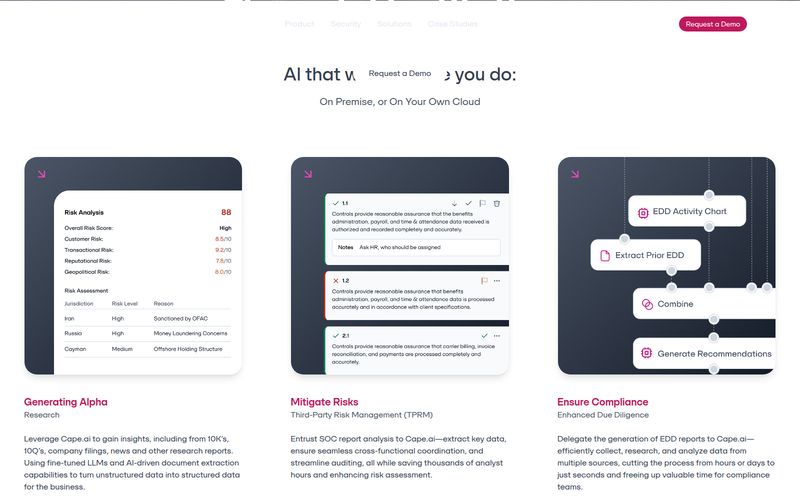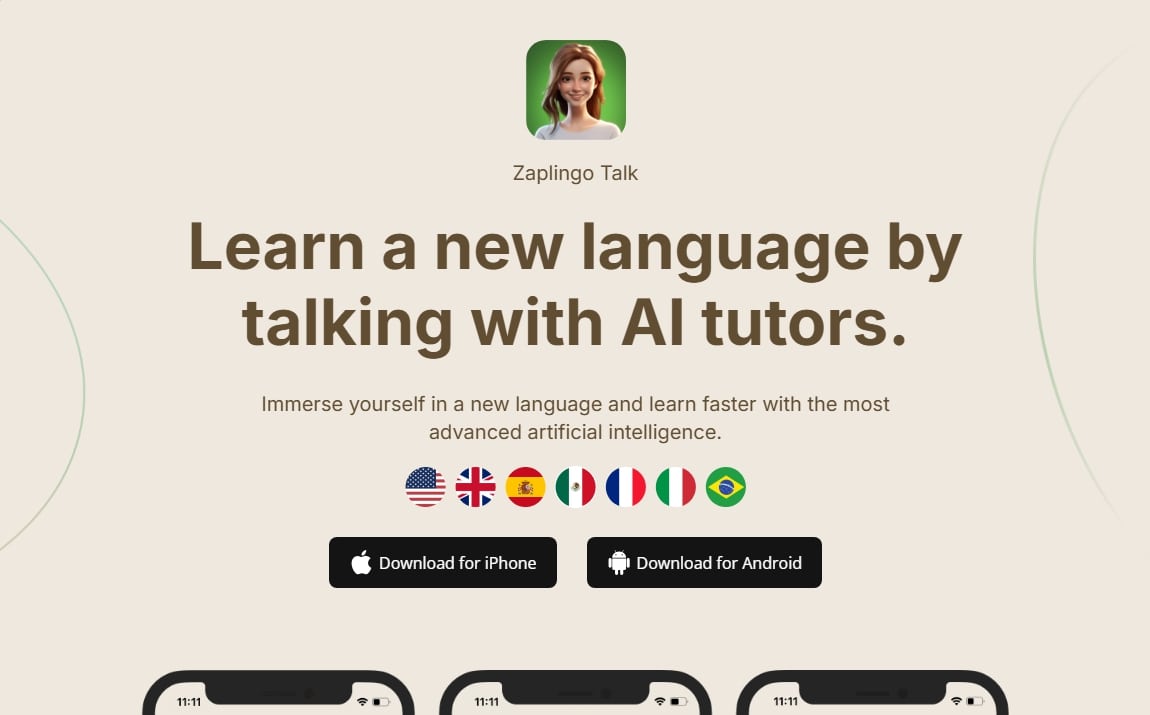Your computer’s desktop is probably a disaster. Mine is. It's a chaotic graveyard of half-named documents, ancient PDFs, screenshots of things I swore I'd need, and about seventeen different versions of the same report. We all have that digital junk drawer, a bottomless pit of information we know is valuable… if only we could find it.
For years, the promise has been that AI would fix this. It would be our brilliant assistant, sorting through the mess and pulling out the perfect answer right when we need it. And in some ways, it has! But it came with a catch, a pretty big one. To get that AI magic, we had to ship all our precious data—our private documents, client info, secret projects—off to some server in a datacenter we'll never see. That's always felt a bit… off to me.
What if you could have the AI brain without selling your data's soul? What if the super-smart assistant lived on your computer with you? Well, that's the powerful idea behind a tool I’ve been playing with lately: Linkly AI. And frankly, it's a breath of fresh air.
So, What is Linkly AI, Really?
Forget the jargon for a moment. At its heart, Linkly AI is a desktop application that lets you have intelligent conversations with your own files. All of them. The ones sitting right there on your hard drive.
Think of it less like a search bar and more like a personal research assistant who has read everything you've ever saved. You can ask it vague questions like, “What were the key takeaways from that marketing conference last year?” and instead of you having to remember the filename, it just… finds the relevant documents and gives you an answer. It’s an open-source AI knowledge base, a “second brain” that is genuinely, 100% private. Because it all happens locally.

Visit Linkly.AI
The Big Deal: Why Local-First and Open-Source Matter
This is the part that gets me really excited. The whole “local-first” philosophy isn’t just a feature; it’s a fundamental shift in how we think about using AI tools. For so long, we've accepted that using powerful tech means giving up a bit of privacy. Linkly AI questions that assumption.
Your Data Stays Yours. Period.
When everything runs on your machine, your data doesn't go anywhere. It’s not uploaded, analyzed, or stored by a third-party company. For anyone dealing with sensitive client information, proprietary research, or just a healthy dose of paranoia about big tech, this is a game-changer. It’s not just a promise of privacy; it’s privacy by design. No more wondering who else might be “learning” from your confidential strategy documents.
The Power of Being Open Source
Linkly AI being open-source is the other half of this trust equation. It means the code that runs the whole thing is publicly available. Anyone with the technical chops can pop the hood and see exactly how it works. There are no secret algorithms, no hidden processes. This transparency builds a massive amount of confidence. Plus, it means a community of developers can contribute, spot security flaws, and make the tool better for everyone. It’s a collaborative effort, not a black box handed down from a corporate giant.
Who Is This Tool Really Built For?
While I think almost anyone could benefit from a private AI, Linkly AI seems purpose-built for a certain kind of person. I see a few key groups getting a huge amount of value here:
- Students and Researchers: Imagine feeding it hundreds of academic papers and being able to ask complex questions across all of them. No more juggling 50 open tabs and trying to remember which paper said what. This could literally change how dissertations are written.
- Technical Professionals & Small Teams: Juggling project specs, meeting notes, code snippets, and client feedback is a nightmare. Linkly AI could act as a shared, yet private, team knowledge base, making it easy to find that one crucial detail from a call three months ago.
- Knowledge Workers: This is a broad category, but if your job involves synthesizing information—consultants, analysts, writers, marketers—you're basically the target audience. It’s for anyone whose main challenge is turning a mountain of information into a single, coherent insight.
A Look at The Features That Actually Count
Okay, let's get into the mechanics. What can it actually do? It’s more than just a fancy chatbot.
The Magic of Advanced RAG Technology
This sounds technical, but the concept is brilliant. Linkly AI uses something called Retrieval-Augmented Generation (RAG). Before the AI answers your question, it first intelligently retrieves the most relevant chunks of information from your documents. Then, it uses that specific information to generate the answer. It’s like giving the AI an open-book exam. The result? Drastically more accurate answers and way fewer of those weird, made-up “hallucinations” that other AIs are famous for.
DeepResearch: Your On-Demand Report Writer
This is a seriously powerful feature. You can ask Linkly AI to research a topic across a large volume of documents and it will generate a structured report for you. This isn't just a simple summary. It’s a synthesis of information drawn from multiple sources, presented coherently. The amount of time this can save is just staggering. What used to take a full day of reading and note-taking can now be done in minutes.
Bring Your Own AI Brain (LLM)
Here’s another point for the tinkerers and the cost-conscious. Linkly AI is model-agnostic. That means you're not locked into using OpenAI's GPT-4, Google's Gemini, or any other specific Large Language Model. You can connect to any of them. Even better, you can connect it to local models running through tools like Ollama. This gives you ultimate control over performance, cost, and privacy. You can pick the right brain for the right job, and if you're running it all locally, you're not paying for API calls. That's huge.
Okay, What's the Catch? (And the Cost)
No tool is perfect, and it’s important to be realistic. Linkly AI is amazing, but it's not necessarily for the complete technophobe.
First, if you want to go the full local route with a model from Ollama, it requires a bit of setup. It’s not impossibly difficult, but it's more involved than just signing up for a website. Second, the performance will depend on your computer. A beefy machine with a good graphics card will run local models much faster than an old laptop. It's a trade-off: you get privacy and control, but you need to provide the horsepower.
Now for the best part. The price. Since Linkly AI is open-source, it's free. Yes, free. There's no subscription, no hidden fees. The cost is your time to set it up and the electricity to run your computer. In a world of endless monthly SaaS bills, that is a beautiful thing.
| Feature | Linkly AI | Typical Cloud AI (e.g., Notion AI, ChatGPT Plus) |
|---|---|---|
| Data Privacy | Excellent (data never leaves your machine) | Variable (data sent to third-party servers) |
| Cost | Free (open-source) | Monthly Subscription ($10-$20+) |
| Customization | High (use any LLM, including local models) | Low (locked into the provider's model) |
| Offline Access | Yes (fully functional offline) | No (requires internet connection) |
Conclusion: Is This Your New Digital Headquarters?
I've seen a lot of AI tools come and go. Many are just thin wrappers around another company's API. Linkly AI feels different. It feels substantial. It's built on a philosophy of user empowerment, privacy and transparency that is desperately needed in the AI space.
Is it for everyone? Maybe not today. If you want a zero-setup, one-click solution, you might stick with the big cloud players for now. But if you're a researcher, a developer, a student, or anyone who values their data privacy and wants unparalleled power and control over their AI tools, then you need to check out Linkly AI. It's not just another app; it's a statement about who should own your information. And the answer, unequivocally, is you.
Frequently Asked Questions About Linkly AI
- 1. What is Linkly AI in simple terms?
- It's a free, private app for your computer that acts like a smart chatbot for all your personal files and documents. It helps you find information and generate reports without sending your data to the internet.
- 2. Is Linkly AI really free?
- Yes, it's an open-source project, which means the software itself is completely free to download and use. Your only costs would be if you choose to connect to a paid AI model's API, but you can also use free, local models.
- 3. Do I need to be a programmer to use it?
- Not to use the basic application. However, to get the most out of it by setting up local AI models (like with Ollama), some technical comfort is helpful. It's a great project for those willing to tinker a little.
- 4. How is Linkly AI different from just uploading a document to ChatGPT?
- The main difference is privacy. With Linkly AI, your documents are processed locally on your computer and never leave it. When you upload a document to a cloud service like ChatGPT, that data is sent to their servers.
- 5. What is RAG and why is it important?
- RAG stands for Retrieval-Augmented Generation. It's a technique where the AI first finds the exact, relevant pieces of information from your documents before creating an answer. This makes the answers much more accurate and based on facts from your files, reducing errors and 'hallucinations'.
- 6. Where can I get Linkly AI?
- As an open-source project, you can typically find it on platforms like GitHub. A search for "Linkly AI GitHub" should point you in the right direction to find the code and download instructions.



